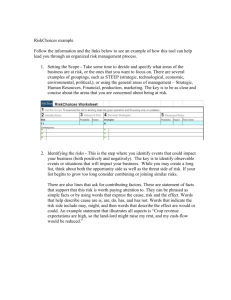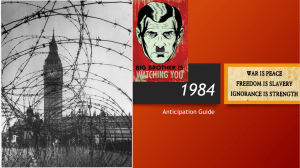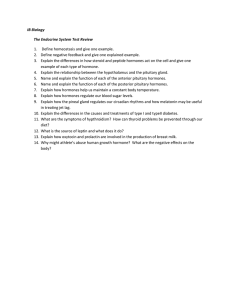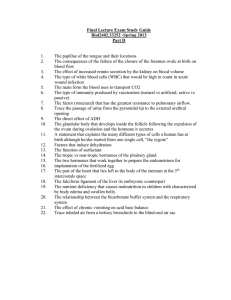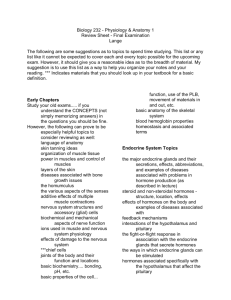Stress Management
advertisement
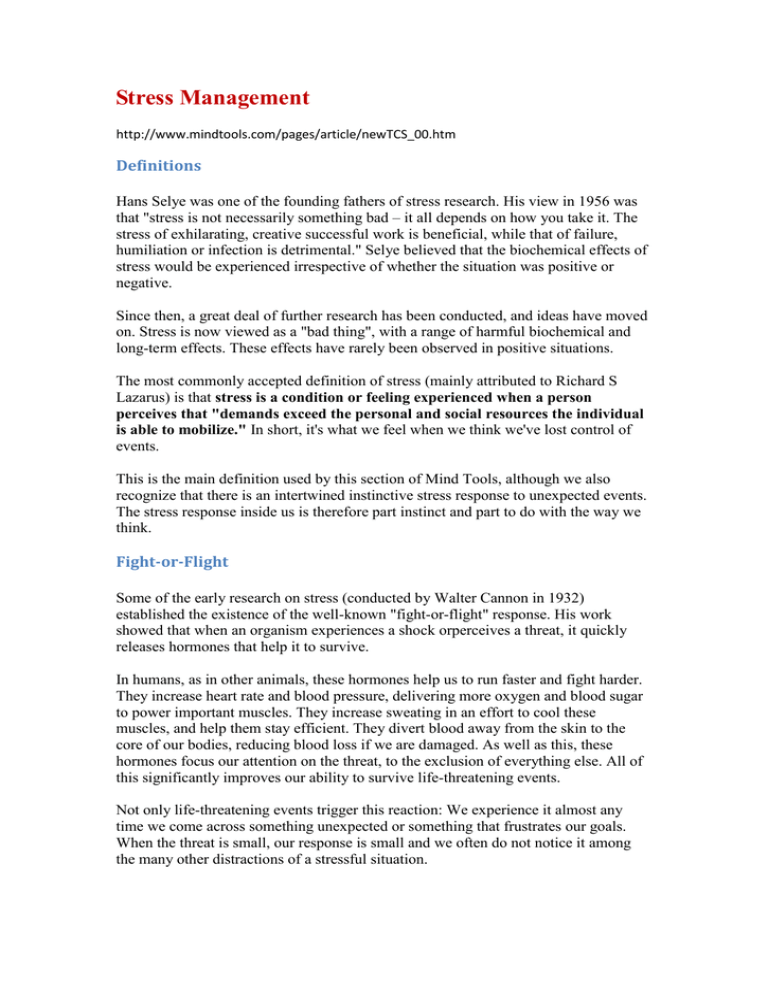
Stress Management http://www.mindtools.com/pages/article/newTCS_00.htm Definitions Hans Selye was one of the founding fathers of stress research. His view in 1956 was that "stress is not necessarily something bad – it all depends on how you take it. The stress of exhilarating, creative successful work is beneficial, while that of failure, humiliation or infection is detrimental." Selye believed that the biochemical effects of stress would be experienced irrespective of whether the situation was positive or negative. Since then, a great deal of further research has been conducted, and ideas have moved on. Stress is now viewed as a "bad thing", with a range of harmful biochemical and long-term effects. These effects have rarely been observed in positive situations. The most commonly accepted definition of stress (mainly attributed to Richard S Lazarus) is that stress is a condition or feeling experienced when a person perceives that "demands exceed the personal and social resources the individual is able to mobilize." In short, it's what we feel when we think we've lost control of events. This is the main definition used by this section of Mind Tools, although we also recognize that there is an intertwined instinctive stress response to unexpected events. The stress response inside us is therefore part instinct and part to do with the way we think. Fight-or-Flight Some of the early research on stress (conducted by Walter Cannon in 1932) established the existence of the well-known "fight-or-flight" response. His work showed that when an organism experiences a shock orperceives a threat, it quickly releases hormones that help it to survive. In humans, as in other animals, these hormones help us to run faster and fight harder. They increase heart rate and blood pressure, delivering more oxygen and blood sugar to power important muscles. They increase sweating in an effort to cool these muscles, and help them stay efficient. They divert blood away from the skin to the core of our bodies, reducing blood loss if we are damaged. As well as this, these hormones focus our attention on the threat, to the exclusion of everything else. All of this significantly improves our ability to survive life-threatening events. Not only life-threatening events trigger this reaction: We experience it almost any time we come across something unexpected or something that frustrates our goals. When the threat is small, our response is small and we often do not notice it among the many other distractions of a stressful situation. Unfortunately, this mobilization of the body for survival also has negative consequences. In this state, we are excitable, anxious, jumpy and irritable. This actually reduces our ability to work effectively with other people. With trembling and a pounding heart, we can find it difficult to execute precise, controlled skills. The intensity of our focus on survival interferes with our ability to make fine judgments by drawing information from many sources. We find ourselves more accident-prone and less able to make good decisions. There are very few situations in modern working life where this response is useful. Most situations benefit from a calm, rational, controlled and socially sensitive approach. In the short term, we need to keep this fight-or-flight response under control to be effective in our jobs. In the long term we need to keep it under control to avoid problems of poor health and burnout.

